Top 5 Reasons For Infertility In Women & What is the Solution
Infertility is an emotional and often frustrating journey for many women. Globally, one in every six couples struggles with fertility, and in Saudi Arabia, the concern is growing due to lifestyle, environmental, and health factors. Understanding the underlying causes of infertility is the first step toward finding the right treatment and reclaiming control over reproductive health.
In this blog, we explore the top 5 reasons for infertility in women.
1. Polycystic Ovary Syndrome
PCOS is a leading cause of infertility and is particularly common in the Middle East, including Saudi Arabia. It is a hormonal disorder that interferes with ovulation due to excess androgens (male hormones) and insulin resistance.
Solutions:
- Weight loss and lifestyle changes
- Medications
- Fertility treatments such as IUI or IVF if natural ovulation can’t be restored
2. Thyroid Disorders
Both an overactive (hyperthyroidism) and underactive thyroid (hypothyroidism) can lead to irregular periods and ovulation issues. In regions with limited awareness, many cases go undiagnosed until a woman experiences difficulty conceiving.
Solutions:
- Blood tests to check TSH, T3, and T4 levels
- Medications to regulate thyroid function
- Monitoring hormone levels throughout the fertility journey
3. Endometriosis
Endometriosis occurs when tissue similar to the uterine lining grows outside the uterus — on the ovaries, fallopian tubes, or pelvic lining. This condition can severely affect fertility by causing inflammation, scarring, and blockages.
Solutions:
- Hormonal therapies to suppress abnormal tissue growth
- Laparoscopic surgery to remove scar tissue
- IVF in advanced or resistant cases
4. Obesity and Lifestyle Factors
A sedentary lifestyle, unhealthy diet, and stress — all of which are increasing concerns in urban Saudi areas — can contribute to obesity-related infertility. Being overweight affects ovulation, egg quality, and hormone levels.
Solutions:
- Personalized weight management programs
- Nutrition counseling and physical activity routines
- Bariatric surgery in severe cases
5. Age-Related Fertility Decline
Fertility naturally declines after the age of 35 due to a drop in egg quantity and quality. Women in their late 30s and 40s may also be more prone to chromosomal abnormalities or miscarriage.
Solutions:
- Ovarian reserve testing (AMH, FSH levels)
- Fertility preservation options (like egg freezing in younger years)
- Assisted reproductive technologies (IVF, ICSI, or other available procedures )
Conclusion:
At The Clinics, we understand that every woman’s fertility journey is different. Our holistic approach ensures that you receive tailored care based on your specific diagnosis and age group.
Don’t wait until infertility becomes overwhelming. Early diagnosis and personalized care can make all the difference.
Book a consultation with Nabda Unit For Fertility and IVF
Please note: This article is for informational purposes only and does not replace professional medical advice. Please consult with a fertility specialist for personalized diagnosis and treatment.



